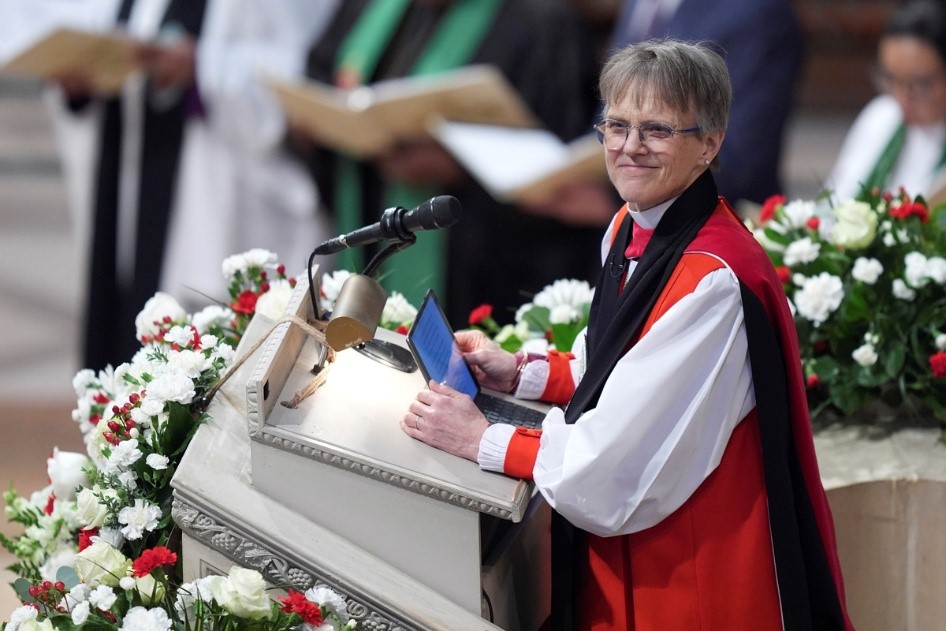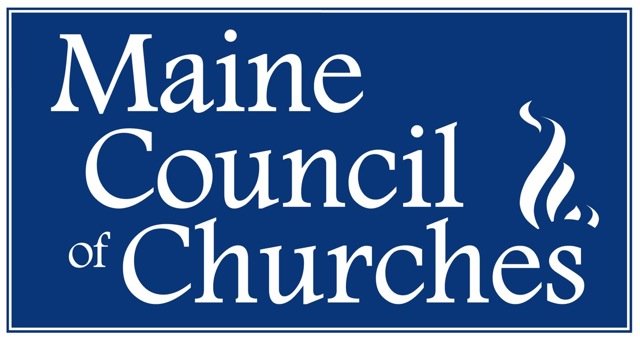An Episcopal bishop reminded us that mercy must be valued, not denigrated

Rev. Mariann Budde leads the national prayer service attended by President Donald Trump at the Washington National Cathedral, Jan. 21, in Washington.
Credit: Evan Vucci / AP
by Opinion Contributor Marge Kilkelly, January 31, 2025
As I settled into the pew on Sunday, mercy was all around me. Our prayers and confession end with “Lord have mercy.” The sermon included mercy. Mercy was present in the announcements with a request for warm clothes for a local shelter. Mercy surrounds me at church; a comforting hug that I receive and share.
As a Christian, I am grateful for the mercy of God every morning when I awake and look out over the pastures and river. I appreciate the mercy granted by friends when I need help or a listening ear. I am grateful for the mercy of a prayer shared. I am humbled to provide mercy in caring for a friend, praying with a person in need, providing a hot meal or sharing in a joyous event.
My faith celebrates a God that loves His entire creation. “For God so loved the world, that He gave His only begotten Son,” says John 3:16 A God whose “Great Commandments” are “Love the Lord your God with all your heart, and with all your soul, and with all your mind” and “Love your neighbor as yourself,” no exceptions. Because we are all created in the image and likeness of God.
A God who is merciful, not because we earned or are owed mercy but because we are the creation of God. We are vessels, filled to overflowing with mercy, which we can share, if we choose to.
On Jan. 21 at the interfaith Service of Prayer for the Nation held at the National Cathedral in Washington, D.C., Rabbi Susan Shankman read from Deuteronomy 10:17-21: “For the Holy One your God, …. upholds the cause of the orphan and the widow, and befriends the stranger, providing those who need with food and clothing. You too must befriend the stranger, for you were strangers in the land of Egypt.”
The Right Reverend Mariann Edgar Budde then delivered the sermon where she called for unity and dialogue. She asked the president, who was in attendance, to have mercy as he begins the work of his term in office. Mercy on people who are vulnerable and afraid, immigrants, LGBTQ+, trans, children, workers- people whose voices are often quiet. She used her voice to amplify their need for mercy.
Some, including the president, have criticized her sermon as inappropriate; but preaching is supposed to help listeners understand a biblical reading differently or more deeply. Sermons are sometimes comfortable, but more often challenging as we reflect on our own actions.
When someone is baptized in the Episcopal Church, we all renew our own baptismal covenant and are asked: “Will you strive for justice and peace among all people, and respect the dignity of every human being?” We answer, “I will, with God’s help.” When an Episcopal bishop is consecrated they are asked: “Will you be merciful to all, show compassion to the poor and strangers, and defend those who have no helper?” and they respond “I will, for the sake of Christ Jesus.”
Bishop Budde has indicated that her goal was to start a conversation and speak for those who are seldom heard. In my opinion, Bishop Budde’s sermon was an example of living into both her baptismal covenant and her role as the bishop of the Episcopal Diocese of Washington.
Sadly, the resulting conversation has been filled with accusations, name calling, and attacks.
For 249 years, the United States has been filled with people who disagreed about religion, policy, direction, and vision for the country. They debated, discussed, listened, learned and for the most part reached agreement about how to proceed. That has been our strength. Respect for diverse opinions has been the bond that knit 50 disparate states into one nation that has been a beacon of democracy in the world. Each subsequent generation has been given the gift of self-governing, which comes with the responsibility to shepherd and improve the structure of government for the next generation.
These are challenging times. I worry that if we cannot even discuss “mercy” how can we have other serious conversations?
As a country, we have been here before and must work through our differences. We are at a critical crossroads. How we live into our role today as stewards of this country will determine the legacy we leave our children.
Shouldn’t we leave them a country where having and showing mercy is valued, not denigrated?
About the author: Marge Kilkelly is Episcopalian. She has worked at all levels of government for 40 years, including 16 years in the Maine Legislature. She currently serves as the vice president of the Maine Council of Churches.

